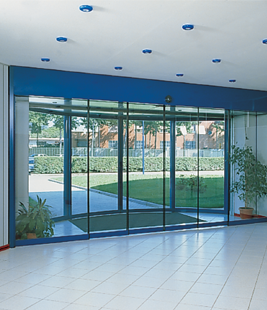When it comes to building a new storefront, the installation of storefront doors is a major decision. It requires careful measurement, fabrication, and foundation work. Choosing the right door for your storefront will affect its performance and cost, as each model has different advantages and drawbacks. Also, you’ll need to consider your store’s traffic flow. The doorway should be large enough for footfall without creating a traffic jam, which is not only inconvenient, but may also violate building codes. Automatic doors will require special sensors and equipment to ensure smooth operation. ADA compliance is also a major factor for storefront door projects.
Choosing a material for your storefront door is another consideration. While storefront glass is the industry standard, solid-core wood is a great option for some businesses. Solid-core wood is durable but tends to weather faster than aluminum. Additionally, ADA-compliant storefront doors cannot weigh more than 8.5 pounds. Regardless of the material you choose, you should carefully consider the door’s weight to determine if it is suitable for your business.
Glass is an important factor for protecting your store. When choosing glass for your storefront, you should choose insulated glass. This material contains special colored pigments that absorb solar energy and reduce light transmission. Many commercial storefront doors use insulated glass, which is composed of two panes of glass separated by a spacer. The spacers help the glass insulates better. Storefront doors with 5/8-inch insulated glass are an excellent choice.
Another important factor is the security of your storefront doors. A storefront door can be fitted with a security system that will protect your store from burglary. Some doors are equipped with security cameras and driveway alarms, which will help to protect your property. Some even come with interlock systems. All of these security features make it difficult for thieves to break into your store and steal your goods. In addition to these features, storefront doors are highly durable.
Storefront doors are available in different sizes and stiles. Some doors have a higher glass content than others, so it is important to consider this factor. Most doors are manufactured with 1 3/4-inch stiles. Other storefront doors may feature 5-inch stiles. If the door is not deep enough, you’ll need specialty hardware. If you’re unsure of what to choose, consult a door hardware store to help you decide.
Commercial grade doors are made to withstand heavy usage, and can handle a range of door conditions. Some storefront doors also feature exit devices. In addition, they offer a range of security options, including infrared sensors. Another type of storefront door is the frameless pivot. This type of door can accommodate large storefront entrances and are compatible with both glass and traditional walls. So, depending on your needs, the best type of storefront door for your business will depend on its size, and the installation of the door itself.
There are three common types of storefront doors. The narrow stile doors are usually the most common, but the medium stile type is also common. The wide stile doors are a little heavier and more durable than the narrow stile doors. This type is used in buildings that require more durability. And the last is the heavy duty wide stile door. It’s important to remember that a wide stile storefront door will depend on the application of the door.
Read know about it zoro-to
Storefront doors can be used for commercial purposes and typically feature a full line of tempered glass. They also have excellent visibility to pedestrians. They are a great choice for front entry doors of any building. These doors are ideal for retail stores, gas stations, and grocery stores. It’s important to consider how the style of storefront door will work with the style of the building and the desired look. If you’re not sure about which type of door you need for your business, consult a professional.
Another option is to manufacture custom storefront doors that meet your business’ requirements. These doors are typically manufactured to a specific size. You’ll need to know the ADA requirements for door opening and closing, as well as your building codes. Also, you should consider the door’s weight, and size, as well as your specific opening and closing force. If you’re unsure of what weight is necessary, talk to your local building code officials.
Read also : ibomma

